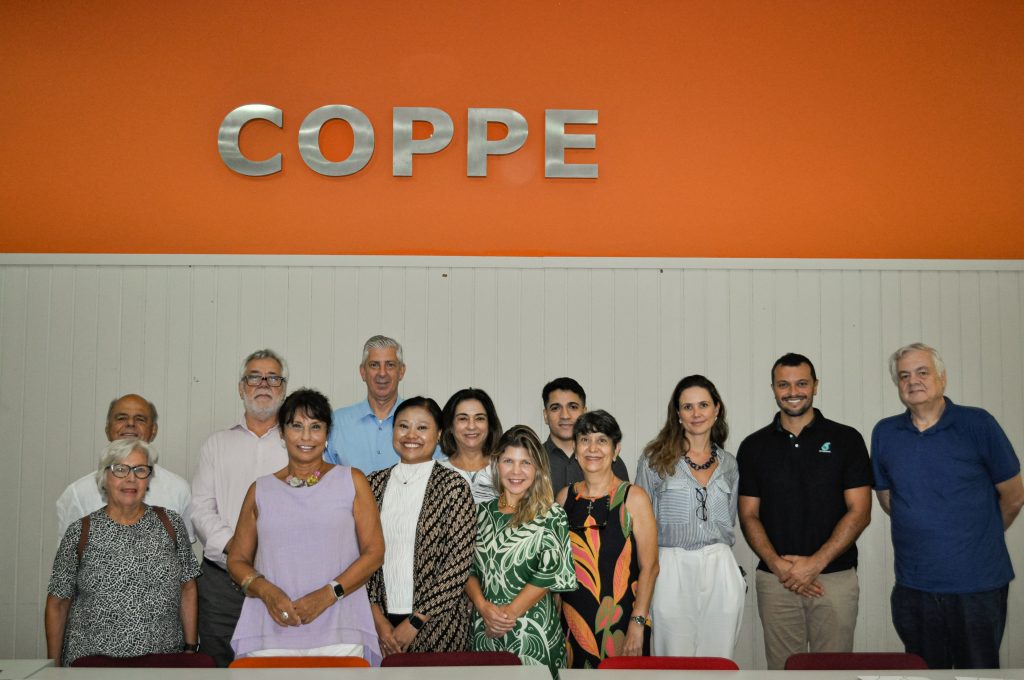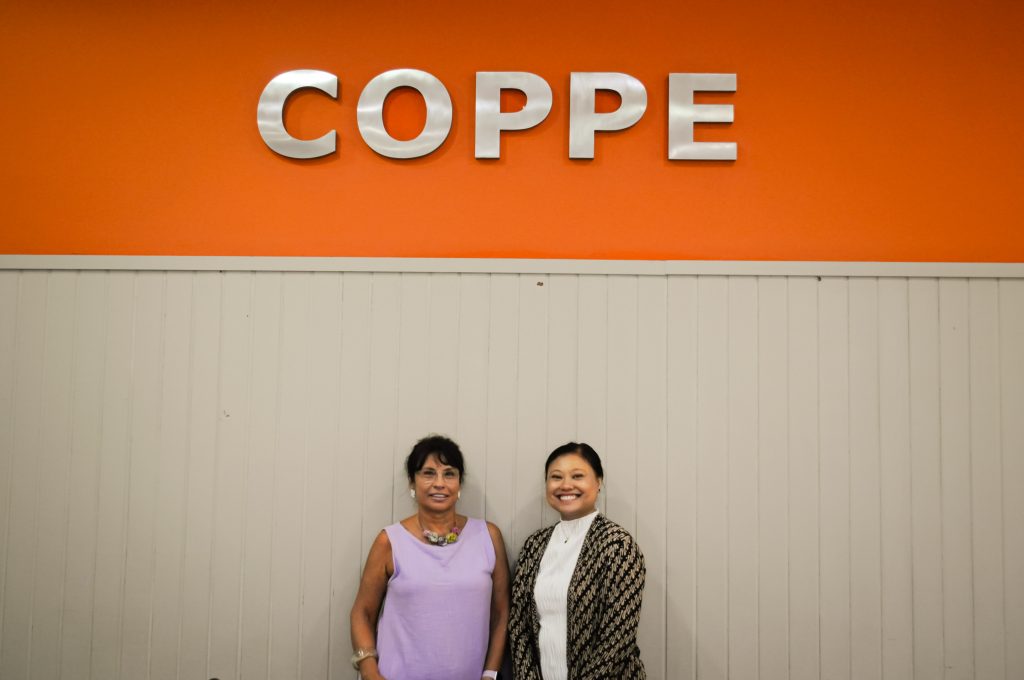Coppe welcomes Petronas delegation
Planeta COPPE / Civil Engineering / Institutional News / Mechanical Engineering / News
Date: 11/03/2025

On Tuesday, March 11th, Coppe/UFRJ welcomed a delegation from the Malaysian oil company Petronas, led by the company’s country head, Suhana Sidik, for a meeting on projects of common interest, especially carbon capture. The first agreement between the parties will be signed in April and deals with gas storage in salt caverns, which will be carried out at the Multiuser Laboratory for Centrifugal Modeling (LM²C), under the coordination of professors Maria do Carmo Cavalcanti, a Polytechnic School (Poli/UFRJ) professor and Marcio Almeida, from Coppe’s Civil Engineering Program.
According to professor Maria do Carmo, “the technology is known, but its application in deep and ultra-deep waters is unprecedented,” she explained.
Next, professor Gustavo Rabello dos Anjos, a professor in the Mechanical Engineering Program, addressed the possibility of carbon capture in saline aquifers, with the development of softwares to predict storage capacity and simulate injection.

The meeting was attended by Coppe’s director, professor Suzana Kahn; Director for Technology and Innovation, professor Marysilvia Costa; and the director of the Center for Solutions in Low-Carbon Technology, Alfredo Renault.
After the meeting, the Petronas delegation visited LM²C and two other Coppe laboratories, the Oceanic Technology Laboratory (LabOceano) and the Computational Methods in Engineering Laboratory (Lamce). In addition to country head Suhana Sidik, representatives included Jonas Queiroz de Castro, Leonardo Berriel, Flavia Freire Oliveira and Felipe Nascimento.
In January, Coppe signed a memorandum of understanding with UTP on biofuels, CCUS, low-emission hydrogen, corrosion and other issues: https://coppe.ufrj.br/planeta-coppe/coppe-recebe-pesquisadores-da-universidade-tecnologica-petronas/.
About Petronas
Petronas (short for Petroliam Nasional Berhad) is a global energy company, present in more than 100 countries, and whose portfolio includes oil, gas, petrochemicals, renewable energy, carbon capture and storage.
Fully state-owned, the company owns all of Malaysia’s oil and natural gas reserves. It is recognized as one of the “new seven sisters”,* influential state-owned companies in the oil and gas sector outside the OECD.
*1) Aramco, Saudi Arabia; 2) Gazprom, Russia; 3) CNPC, China; 4) NIOC, Iran; 5) PDVSA, Venezuela; 6) Petrobras, Brazil; and 7) Petronas, Malaysia.
- Decarbonization
